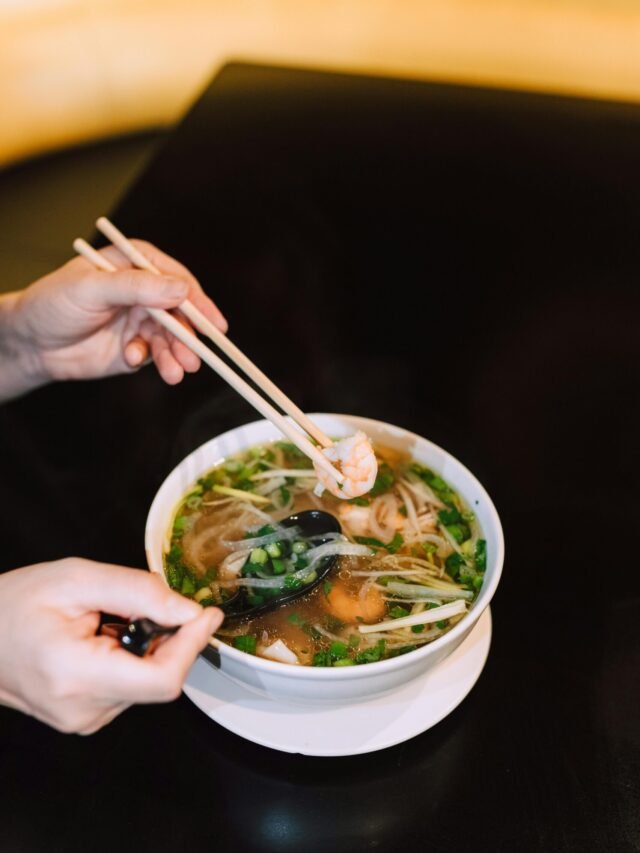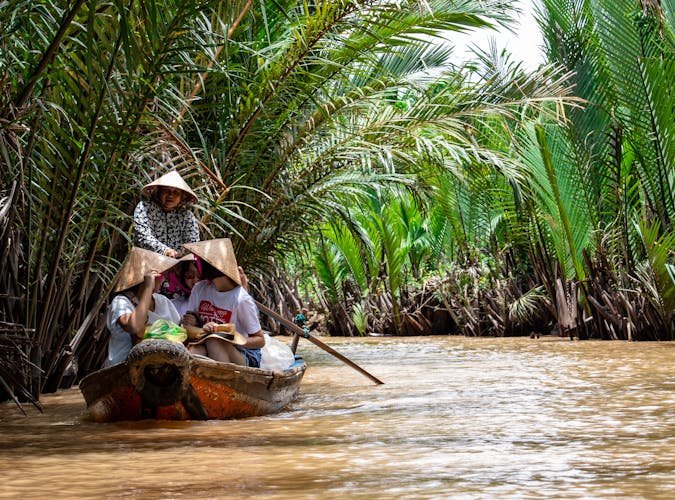
Introduction to Vietnam
Vietnam is a captivating destination that enchants travelers with its unique charm, rich history, and vibrant culture. Nestled in Southeast Asia, this country boasts a diverse landscape that stretches from the serene beaches of the south to the misty mountains of the north. Each region presents its own allure, making it a multifaceted travel guide to Vietnam from India.
When embarking on a journey to Vietnam, visitors are met with an array of experiences that reflects the nation’s storied past and dynamic present. The remnants of ancient civilizations mingle with modern developments, offering a rich tapestry that illustrates the evolution of Vietnamese society.
Historic cities such as Hanoi and Ho Chi Minh City are must-visit locales where ancient temples coexist alongside vibrant street markets and contemporary architecture, showcasing a blend of tradition and innovation.
The natural beauty of Vietnam is equally striking, ranging from the picturesque rice terraces of Sapa to the breathtaking limestone karsts of Halong Bay.
Nature lovers will find the landscapes not only visually stunning but also rich in biodiversity. These settings offer peaceful retreats where travelers can reconnect with nature, offering ample opportunities for trekking, boating, and exploring hidden gems.
Table of Contents
Moreover, the warmth and hospitality of the Vietnamese people play an essential role in creating an unforgettable experience. Known for their friendliness and welcoming demeanor, locals often go out of their way to assist travelers, making visitors feel at home in this beautiful country.
Anticipate a destination brimming with rich experiences, cultural rich heritage, and breathtaking scenery. Whether you seek adventure or tranquillity, Vietnam promises a memorable journey that will leave an indelible mark on your travel adventures.
Cultural Insights To Vietnam
Vietnam boasts a rich cultural tapestry shaped by a unique blend of indigenous traditions and the influences of various historical events. From ancient times to contemporary society, the evolution of Vietnamese culture reflects the resilience and adaptability of its people.
A crucial aspect of this culture is evident in traditional customs, particularly the importance placed on family values and communal living. In Vietnam, families often operate as close-knit units, with respect for elders being paramount, thus fostering strong intergenerational bonds.
Central to Vietnamese culture is the practice of ancestor worship, which underscores the significance of familial connections that transcend generations.
This veneration is manifest in various rituals and celebrations, where families come together to honor deceased relatives.
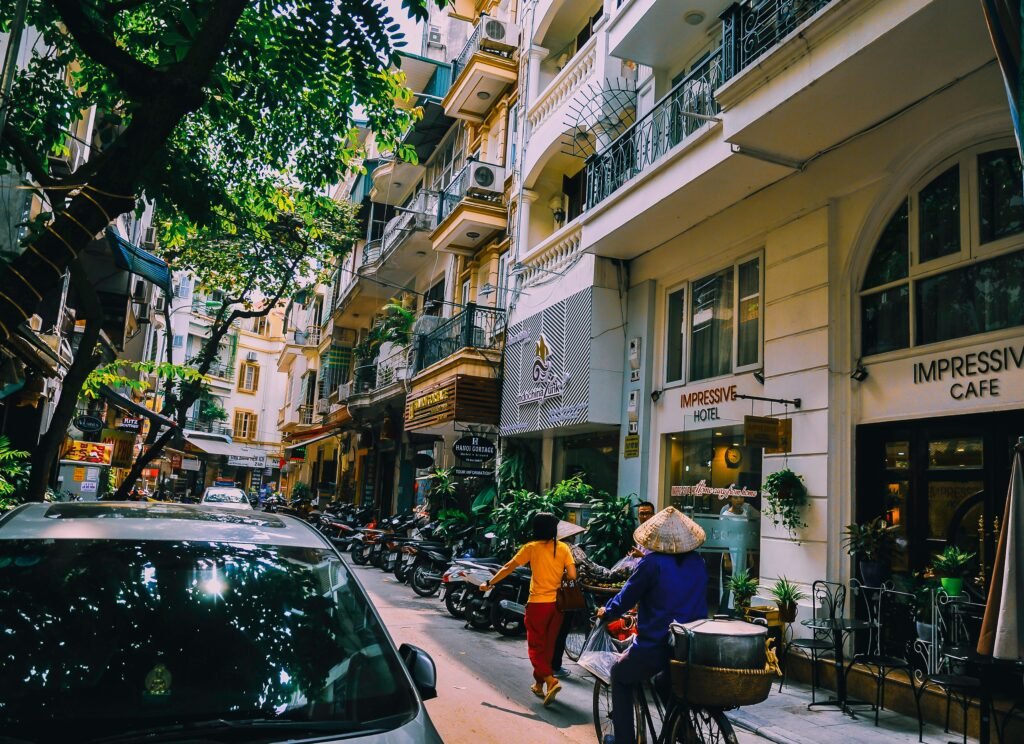
Such practices highlight the cultural emphasis on lineage and respect for one’s heritage. In many households, ancestral altars serve as a focal point, adorned with offerings and images to pay tribute to forebears, reflecting a deep-seated practice respected across the nation.
The annual festivals celebrated throughout Vietnam offer further insights into the country’s cultural richness.
Festivals like Tet, the Lunar New Year, are of great significance, marking the arrival of spring and symbolizing renewal and hope. These observances are characterized by traditional foods, vibrant decorations, and various communal activities that reflect the collective spirit of the Vietnamese people.
Such events are not only celebrations of cultural heritage but also a means of reinforcing communal ties and fostering a sense of belonging among participants.
In conclusion, this travel guide to Vietnam from India aims to provide deeper understanding of the social fabric that shapes Vietnamese life.
By exploring these cultural insights, travelers can appreciate the significance of customs, familial bonds, and festivals, enriching their travel experience and fostering meaningful connections while visiting this beautiful country.
Culinary Delights
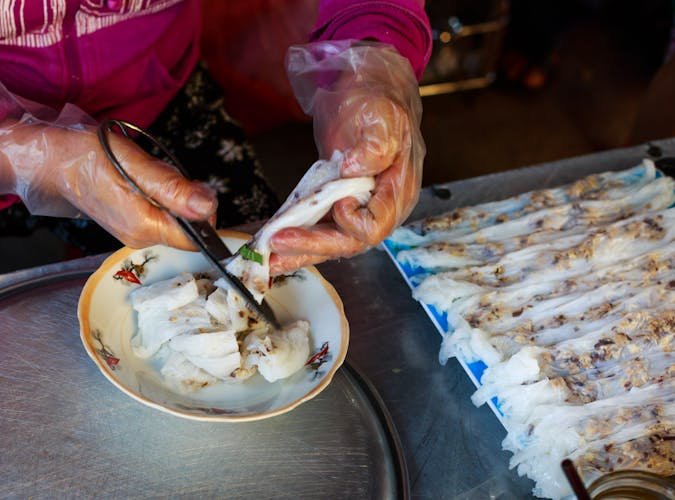
The diverse food scene in Vietnam offers a tantalizing array of flavors and experiences, making it an essential aspect of any travel guide to Vietnam from India. Renowned for its freshness and balance of flavors, Vietnamese cuisine invites travelers to indulge in a symphony of tastes that reflect the country’s rich culture and heritage.
One cannot visit Vietnam without trying Pho, a fragrant noodle soup often enjoyed for breakfast, featuring beef or chicken, fresh herbs, and a richly flavored broth. This beloved dish exemplifies the country’s culinary artistry and is best appreciated in local eateries or street-side stalls.
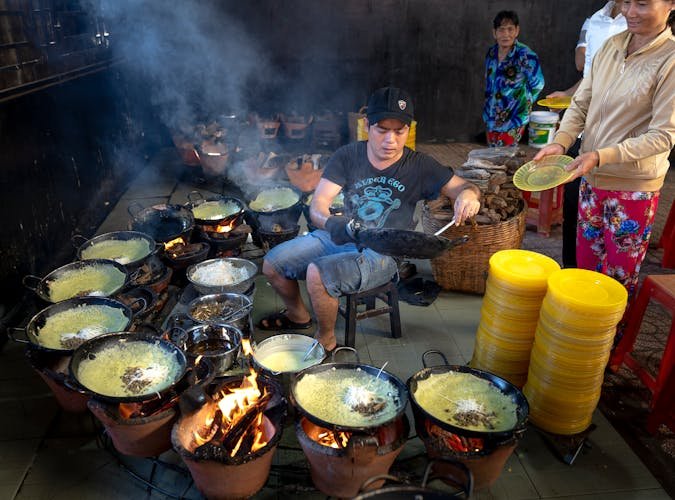
Another must-try is Banh Mi, a delicious sandwich that showcases Vietnam’s French colonial influence. It consists of a crispy baguette filled with various ingredients, including meats, pickled vegetables, and herbs, making it an ideal choice for a quick meal on the go.
Additionally, fresh spring rolls, known as Goi Cuon, are a refreshing option filled with greens, vermicelli noodles, and shrimp or pork, perfect for those seeking a healthier option while exploring the vibrant streets.
Dining etiquette in Vietnam can enhance your culinary experience. It is customary to greet your hosts with a polite “Chào” and to wait for the host to begin the meal. When enjoying street food, be sure to follow local cues; often, standing while eating is acceptable, reflecting the on-the-go nature of the vibrant food culture.
Exploring food markets is an excellent way to delve deeper into the local cuisine, providing a feast for the senses with their tantalizing aromas and colorful displays. Here, you can sample numerous dishes and learn about the various regional specialties that comprise the rich tapestry of Vietnamese gastronomy.
By embracing the culinary delights, you will undoubtedly leave Vietnam with unforgettable memories and a deeper appreciation for its food culture.
Transportation Tips
When embarking on a journey to Vietnam, understanding the transportation options available is crucial for an efficient travel experience.
Among the most popular methods is the motorbike, which is an integral part of daily life in Vietnam. Travelers can either rent a motorbike for complete freedom to explore or hire a local driver for added safety, especially for those unfamiliar with the chaotic traffic conditions.
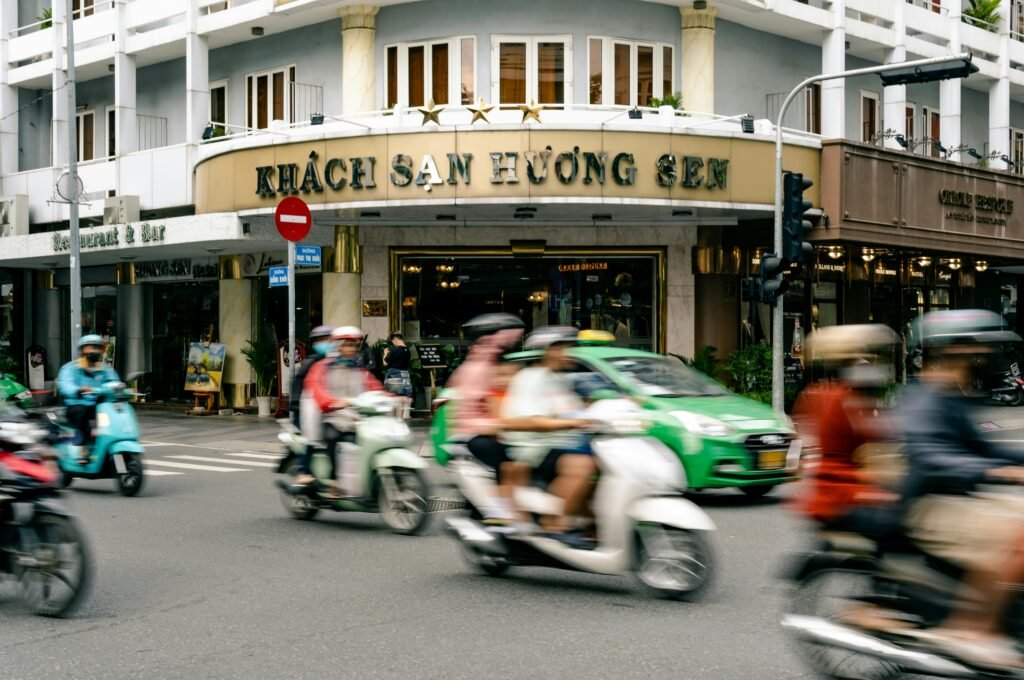
Buses are another common way to navigate through both cities and rural areas. The local bus system is affordable and connects major tourist spots; however, schedules can be irregular, making it essential for travelers to plan accordingly.
For longer distances, sleeper buses are available, offering a unique way to travel overnight while resting comfortably. In addition, the more modern express bus services provide a reliable alternative for traveling between popular cities.
Trains represent a scenic and leisurely mode of transport, linking key urban centers. The railway offers an array of options, including soft and hard sleeper compartments, catering to different budgets.
Pre-booking tickets is advisable, particularly during peak travel seasons, to ensure availability along popular routes. Various travel applications can assist visitors in finding routes and schedules, making it easier to navigate Vietnam’s transport network.
Safety is key when utilizing these transportation options. Wearing helmets while riding motorbikes is not just recommended; it is mandatory. Furthermore, opting for established bus and train services can mitigate potential risks.
By familiarizing themselves with Vietnam’s transportation landscape, international travelers can ensure a seamless experience as they explore the enchanting sights of this vibrant country.
The Friendly People of Vietnam
The Vietnamese populace is renowned for its warmth and hospitality, which significantly enhances the travel experience for visitors from India and beyond.
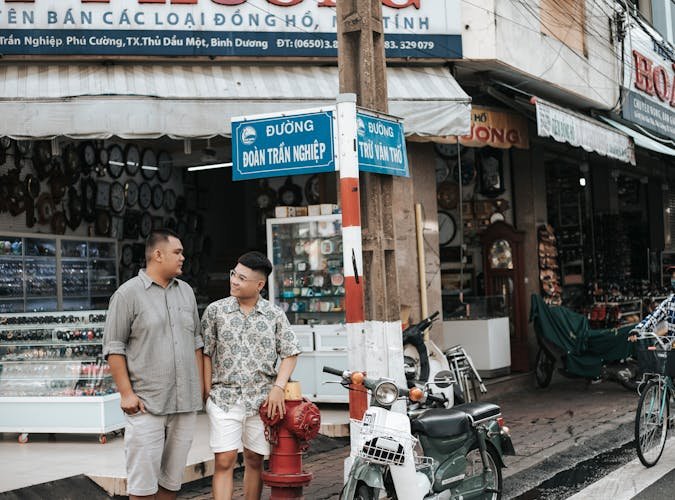
Engaging in conversation, sharing smiles, and participating in traditional customs are commonplace. These interactions not only provide insights into the Vietnamese culture but also foster a sense of connection between travelers and residents.
The diverse ethnic composition of Vietnam, comprising over fifty distinct groups, contributes to a rich tapestry of cultural practices and ways of life. Each group possesses unique customs, traditions, and languages, resulting in a vibrant and multifaceted social environment.
Upon exploring different regions, such as the mountainous areas of the north or the bustling cities in the south, travelers will observe the varied lifestyles and interactions that characterize each ethnic group.
This cultural diversity presents an immense opportunity for visitors to learn and appreciate the country’s heritage.
Respect and effective communication play pivotal roles in forming positive relationships with the locals. Understanding basic Vietnamese phrases can significantly enhance interactions, making the experience more enjoyable. Additionally, showing appreciation for local customs, such as dress codes in rural areas or dining etiquette, can lead to deeper connections and endearing exchanges with the Vietnamese people.
This emphasis on mutual respect enriches the travel experience, gradually overcoming language barriers and fostering lasting memories.
In conclusion, the amiable nature of the Vietnamese people paired with the country’s rich ethnic diversity provides travelers with an unparalleled opportunity to engage and learn.
Whether navigating city streets or exploring remote villages, the friendliness and hospitality of the locals will undoubtedly leave a lasting impression on every traveler’s journey.
Natural Wonders and Outdoor Activities
Vietnam boasts an array of breathtaking natural landscapes that enchant travelers from around the globe. The country is home to stunning destinations like Ha Long Bay, the Mekong Delta, and the mountainous regions of Sapa, each offering unique experiences for outdoor enthusiasts.
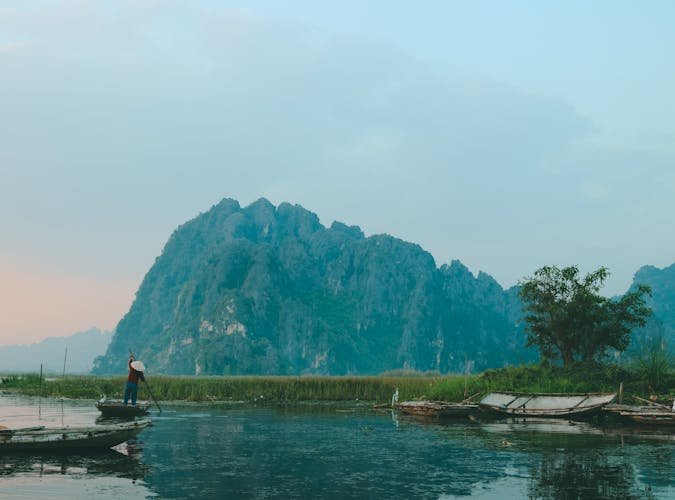
These sites not only showcase Vietnam’s diverse geography but also provide a perfect backdrop for a myriad of activities.
Starting with Ha Long Bay, a UNESCO World Heritage site, visitors can marvel at the spectacular sight of limestone pillars and emerald waters.
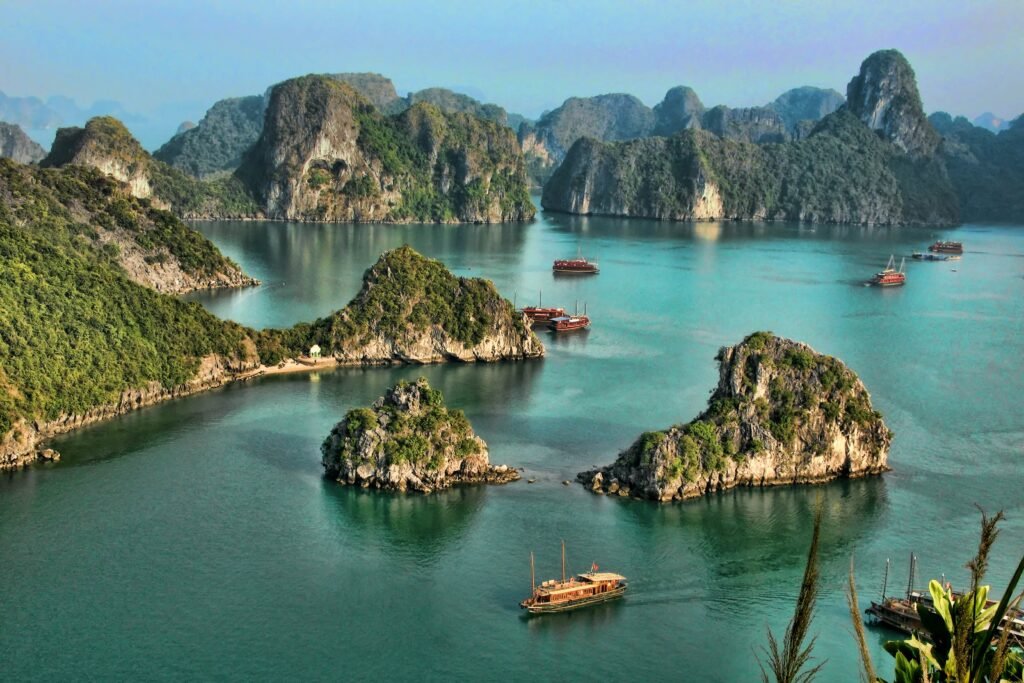
One of the best ways to experience this natural wonder is through boat tours that allow travelers to explore hidden caves and floating fishing villages. Kayaking amidst the serene waters provides an intimate connection with the stunning surroundings, making it a must-try activity for everyone.
The Mekong Delta, often referred to as the “Rice Bowl” of Vietnam, presents a different yet equally mesmerizing experience. The extensive network of rivers and canals is ideal for boat excursions, where travelers can observe the local way of life. Engaging in biking through the lush countryside and visiting traditional markets offers an authentic taste of Viet culture.
This region is perfect for those who enjoy outdoor activities intertwined with rich cultural experiences.
In the north, Sapa’s mountainous terrains present breathtaking views and opportunities for trekking. The gripping trails lead through terraced rice fields and quaint villages that are home to various ethnic groups.
Many itineraries suggest guided treks ranging from simple walks to challenging hikes, catering to various skill levels. With its picturesque landscapes and vibrant culture, Sapa is often highlighted in many travel guides to Vietnam from India.
Vietnam’s natural wonders indeed provide exceptional outdoor activities for every traveler. These experiences, from sailing in Ha Long Bay to trekking in Sapa, make visiting this beautiful country a memorable adventure.
Such diversity in landscapes and activities is what truly makes Vietnam a captivating destination for outdoor lovers.
Things to Do in Vietnam
Vietnam offers a diverse range of attractions and experiences that cater to various interests, making it an exciting destination for travelers. One of the key highlights for history enthusiasts is the War Remnants Museum in Ho Chi Minh City, which provides a poignant insight into the effects of the Vietnam War.
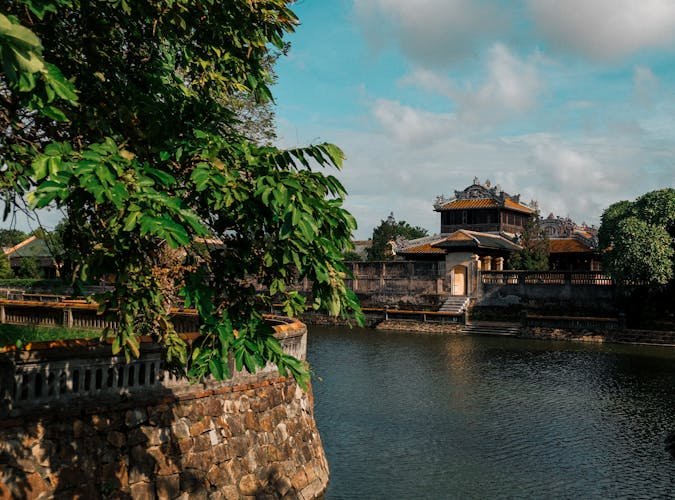

The exhibits showcase photographs, military equipment, and personal testimonies, ensuring that visitors leave with a deeper understanding of the country’s turbulent past. Nearby, the Cu Chi Tunnels are a must-visit.
These intricate underground networks served as hideouts for soldiers during the war and offer guided tours that allow visitors to experience life in the tunnels and learn about their historical significance.
For those seeking a more modern experience, Vietnam’s bustling markets are not to be missed. The Ben Thanh Market in Ho Chi Minh City is a colorful hub of activity where travelers can sample local street food, purchase handmade crafts, and immerse themselves in the vibrant atmosphere.
Hanoi’s Old Quarter also features a variety of shops and street vendors, where visitors can hunt for souvenirs while enjoying the local culinary scene.
The country’s stunning coastal beaches, such as those found in Da Nang and Nha Trang, provide opportunities for relaxation and adventure.
Beachgoers can enjoy sunbathing, swimming, and water sports, while those interested in cultural experiences can partake in cooking classes or craft workshops, which allow travelers to connect with local artisans and learn about traditional Vietnamese arts and cuisine.
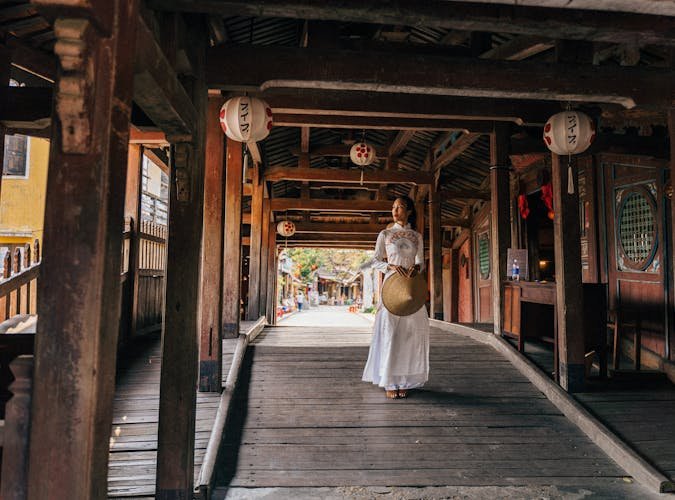

Each experience offers a unique lens through which visitors can appreciate Vietnam’s rich culture and history.
The combination of vivid landscapes, intriguing local customs, and warm hospitality ensures that any traveler will leave with cherished memories.
Traveling from India to Vietnam
Traveling from India to Vietnam offers an enriching experience, marked by vibrant culture, stunning landscapes, and hospitable locals.
However, before embarking on this journey, it is crucial for Indian travelers to be aware of several practicalities that can facilitate a smooth transition to the Southeast Asian country.
First and foremost, visa requirements must be addressed. As per the latest regulations, Indian passport holders are required to obtain a visa prior to arrival in Vietnam.
This can be done either through the Vietnamese Embassy in India or via an e-Visa application, which is a straightforward process that allows for stays of up to 30 days. This online option is not only convenient but also generally faster, making it an appealing choice for many travelers planning to explore Vietnam. It is advisable to ensure that all travel documents are in order well in advance of the trip.
Regarding flight options, numerous airlines offer direct flights from major Indian cities such as New Delhi, Mumbai, and Bengaluru to Vietnam’s key destinations, including Hanoi and Ho Chi Minh City.
The flight duration typically ranges from 5 to 7 hours, depending on the specific route. For those looking for budget-friendly options, it may be beneficial to monitor fare trends and consider indirect flights, which can sometimes yield significant savings.
Upon arrival, travelers should keep in mind several cultural nuances to enhance their experience. The Vietnamese culture emphasizes respect and politeness, particularly towards elders.
Simple gestures, such as greeting locals with a smile and using both hands when giving or receiving items, can foster goodwill.
Moreover, being mindful of personal space and modest dressing, especially when visiting religious sites, is appreciated by the local populace.
Overall, understanding the necessary visa processes, available flight options, and cultural norms will significantly contribute to a successful travel guide to Vietnam from India, ensuring that visitors enjoy everything this beautiful country has to offer.
Best Time to Visit Vietnam
Vietnam, known for its rich culture and stunning landscapes, exhibits a diverse climate that varies greatly from region to region.
The country can generally be divided into three climatic zones: the North, Central, and South regions, each boasting its own unique seasonal characteristics that influence the best times to visit.
In Northern Vietnam, the weather is characterized by four distinct seasons. The ideal period to visit is from October to April, when the temperatures are mild and dry. During this time, travelers can enjoy iconic attractions such as Hanoi’s Old Quarter and the mystical landscape of Halong Bay.
Notably, the Tet Festival, celebrated around late January to early February, offers an exceptional experience filled with cultural richness.
Central Vietnam, particularly cities like Hue and Hoi An, enjoys a more temperate climate. The dry season lasts from February to August, making this timeframe perfect for beach-goers and those looking to explore the ancient towns. However, travelers should also consider the possibility of typhoons between September and November, impacting travel plans.
The Mid-Autumn Festival in September is an experience not to be missed, reflecting the region’s strong cultural heritage.
In Southern Vietnam, including Ho Chi Minh City and the Mekong Delta, the weather is typically tropical, featuring a dry season from December to April.
This season allows for full exploration of vibrant street markets and lively nightlife. The annual Floating Market Festival, usually celebrated in April, showcases the unique cultural experience of this region. Given the diverse climates across the country, packing layers, lightweight clothing, and waterproof gear tailored to your travel schedule will help ensure a comfortable trip.
Related posts:
What's Your Reaction?
One of my friends once said, I am in love with words and a zoned out poser... well, I will keep it the way it has been said! Besides that you can call me a compulsive poet, wanna-be painter and an amateur photographer











